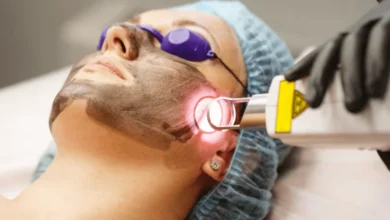Mastering the Art of Childcare: Tips for Aspiring Daycare Professionals

If you are considering a career in childcare and have a passion for working with children, becoming a daycare professional may be the perfect path for you. Working in a daycare setting can be rewarding and fulfilling – but it also requires dedication, patience, and a strong set of skills. Institutions like Daycare & Early Learning Academy in Ohio usually have engaging educational activities for kids of varying ages and usually have exceptional childcare staff members. But what does it take to become a childcare professional of such caliber?
This guide will provide you with some valuable tips to help you succeed as an aspiring daycare professional. From obtaining the necessary qualifications to creating a nurturing environment for children these tips will help you navigate the challenges and make a positive impact on the lives of the children in your care.
Necessary Qualifications
To become a childcare professional, there are several necessary qualifications and skills that are typically required. These qualifications may vary depending on the specific role and the country or state in which you are seeking employment. However, some common qualifications include:
- Education and training: Many childcare professionals are required to have a minimum level of education, such as a high school diploma or equivalent. Some positions may require additional education, such as an associate’s or bachelor’s degree in early childhood education or a related field.
- Experience: Employers often prefer or require candidates with previous experience working with children. This can include volunteer work, internships, or employment in childcare centers, schools, or other child-focused settings.
- Knowledge of child development: Childcare professionals should have a solid understanding of child development principles and milestones. This includes knowledge of physical, cognitive, social, and emotional development in children of different ages.
- Communication and interpersonal skills: Childcare professionals should be able to communicate clearly, listen actively, and build positive relationships with children and their parents or guardians.
- Safety and health awareness: Childcare professionals must prioritize the safety and well-being of the children in their care. This includes knowledge of safety protocols, basic first aid and the ability to create a safe and healthy environment.
It’s important to note that specific qualifications and requirements may vary depending on the type of childcare setting, such as a daycare center, preschool, or in-home care. Obtaining any necessary licenses or certifications mandated by local regulations is also crucial for childcare professionals.
Continuous Professional Development
Continuous professional development is crucial for daycare professionals to enhance their skills, knowledge and expertise in their field. As a daycare professional, CPD allows you to stay updated with the latest research, best practices and regulations in early childhood education. Attending workshops, conferences and seminars related to early childhood education can provide valuable insights and networking opportunities.
Collaborating with colleagues and participating in professional learning communities can also contribute to CPD. Sharing experiences, exchanging ideas, and discussing challenges with other daycare professionals can foster growth and provide different perspectives. Furthermore, reading professional literature, such as books, journals and articles, is essential for staying informed about current trends and research in early childhood education. By actively engaging in CPD activities, daycare professionals can ensure they are providing the best possible environment and learning experiences for the children in their care.
Ready to put these tips into action? For more valuable insights, don’t forget to check out our other articles!






